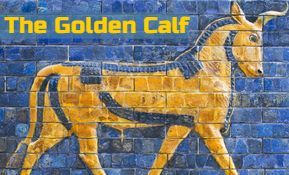
Ki Tavo: The Importance of Thanks
Gratitude is fundamental to our relationship with God. Hashem showers us with every good thing: life, sustenance, health, livelihood..

First Fruits
“It will be when you enter the Land that Hashem, your God, gives you as an inheritance, and you possess it, and dwell in it, that you shall take of the first of every fruit of the ground that you bring in from your Land that Hashem, your God, gives you, and you shall put it in a basket and go to the place that Hashem, your God, will choose, to make His Name rest there” (Devarim 26:1-2).
According to the Midrash, the world was created, among other reasons, for the mitzvah of taking the first fruits to Jerusalem (the mitzvah of Bikkurim): “Bereishit bara – the entire world was created for the sake of the first fruits that are called reishit” (Midrash Rabbah, Bereishit).
What’s so important about these first fruits? Let’s take a look at the Alshich’s explanation of one of the Halachot governing a hired worker. Although a hired worker is prohibited from interrupting his work to greet anyone, he is required to stand and greet the procession of farmers carrying the first fruits to Jerusalem. Why?
Hashem treasures the mitzvah of Bikkurim, the first fruits, for it includes a moving declaration of gratitude to God for His eternal role in guiding Jewish History. Gratitude is fundamental to our relationship with God. Hashem showers us with every good thing: life, sustenance, health, livelihood, and all of our needs, and we reciprocate with gratitude.
Our level of avodat Hashem, Divine Service, is directly related to the amount of gratitude we feel for this Divine shower of abundance. A more refined individual continually contemplates the gifts he receives and thanks the One Above, whereas the coarse individual takes everything for granted (Rabbi Y. Neiman, Darchei Mussar).
The Vile Nation
Rabbi Neiman cites the Ramban’s commentary on the Song of Ha’azinu (found in the last sedra of the year), which presents God’s response to the slumber and betrayal of His nation: “They provoked Me with a non-god, angered me with their vanities; so shall I provoke them with a non-people, with a vile nation shall I anger them” (Devarim 32:21).
What is meant by a “vile nation?”
First, let’s examine how this response differs from God’s response to the nation’s treachery recorded in this week’s Parsha, Parshat Ki Tavo.
In this week’s parsha the Torah warns: “Hashem will carry against you a nation from afar, from the end of the earth, as the eagle soars, a nation whose language you will not understand. A brazen nation that will not be respectful to the old, and will not pity the young…” (Devarim 28:49-52).
In another place, Parshat Bechukotai, Hashem rebukes His nation and warns us that a foreign nation will conquer the Jews: “I will set my face against you and you will be defeated before your enemies; your foes will rule over you and you will flee [even] when no one is pursuing you” (Vayikra 26:17).
What is the difference between the enemy in the Song of Ha’azinu, “a non-people … a vile nation,” and the enemy mentioned in the other rebukes?
First, we must define what the Torah means by the word “vile.” It is written (Tehillim 14): “The vile man says in his heart, ‘There is no God!’ They have corrupted and made abominable their actions, there is no doer of good.” The vile man denies God and as a result he is corrupt, abominable and does no good.
The Torah does not refer to every evildoer as “vile.” This term is used only for one whose wicked deeds are a result of his denial of the existence of God.
In the other rebukes (cited above from Devarim and Vayikra), the Torah speaks of “enemy,” “nation,” or “foe.” When the Torah uses the expression in Ha’azinu: “with a vile nation shall I anger them” we understand that it is speaking of a different type of nation. The enemies referred to in the other rebukes were not titled described as vile because they were not atheists. They served idols and bowed to wood and stone, but were not antagonistic to the existence of God.
In regards to idol worship, Rambam (Maimonides) writes: “All those who worshiped idols did not do so out of a conviction there was no other god. They never imagined in the previous generations nor will they ever imagine in the future that the idol formed out of wood or stone created heaven and earth. They worshiped the idol out of the premise that it was an intermediary between man and God” (Hilchot Avoda Zara).
Based on this, we understand that although the nations mentioned in these rebukes were cruel or wicked, they were not vile. The nation mentioned in Ha’azinu, however, is an atheistic nation that rebels against God. It scorns and mocks God and sees no need to even recognize His existence. Ramban captures this idea in a few short words in his classic commentary: “a vile nation” – these are the apikursim, atheists.
It is no coincidence that the type of nation mentioned in Ha’azinu is different from the type mentioned in the other rebukes in the Torah, because the sin of the Jewish people mentioned in Ha’azinu is different from the sins mentioned in the other weekly Sedras. In the great rebuke of Parshat Ki Tavo it is warned what will occur if the nation does not hearken to God, fulfill His commandments, and walk in His way.
The Song
The Song of Ha’azinu does not refer to a lack in observance of the mitzvot. In the Song, it states: “And it [the nation] deserted God its Maker, and was contemptuous of the Rock of its salvation” (Ibid. 32:15). The Hebrew root for “contemptuous” – nabeil – is the same as that of “vile” – novol. The Song parallels the phrase “was contemptuous” with the phrase “it deserted God,” which refers to atheism and the desire to hide from God.
For this reason Israel is referred to in the Song as a “vile and unwise people.” If the people of Israel were wise they would have known: “Is He not your Father, your Master? Has He not created you and formed you?” (Ibid. 6). But when the nation abandons God, not only are they hiding from the truth, they have fallen to the level of being “vile.”
The Torah predicts consequences that are measure for measure. The Jewish nation chose to be vile and desert God its Maker, and a “vile nation” will be sent whose intention is to anger God and bring about a calamity.
The Ingrate
Rabbi Moshe Rosenstein (cited in Darchei Mussar) explains that the atheist is called vile because he does not recognize the benefits he receives from Hashem. If a person would be the guest in his friend’s house, eating and sleeping there, and yet never say ‘thank you,’ his actions would be considered vile and despicable.
This ingratitude is one step away from being an apikorus, atheist, for our Sages said that someone who does not appreciate the kindness he receives from his fellow man will certainly come to deny Hashem.
Therefore, the Torah emphasizes the importance of the mitzvah of the first fruits, and even a hired worker must interrupt his work to honor this mitzvah. The one who brings the first fruits is acknowledging that all his blessings come from Hashem; this is the very epitome of gratitude. For the sake of those individuals who recognize and acknowledge their Creator it was worthwhile to create the entire world. And the converse is true; the lack of gratitude brings the horrible consequences prophesied in the Song of Ha’azinu.
May Hashem help us to recognize His gifts and acknowledge them in eternal gratitude.











Tell us what you think!
Thank you for your comment!
It will be published after approval by the Editor.